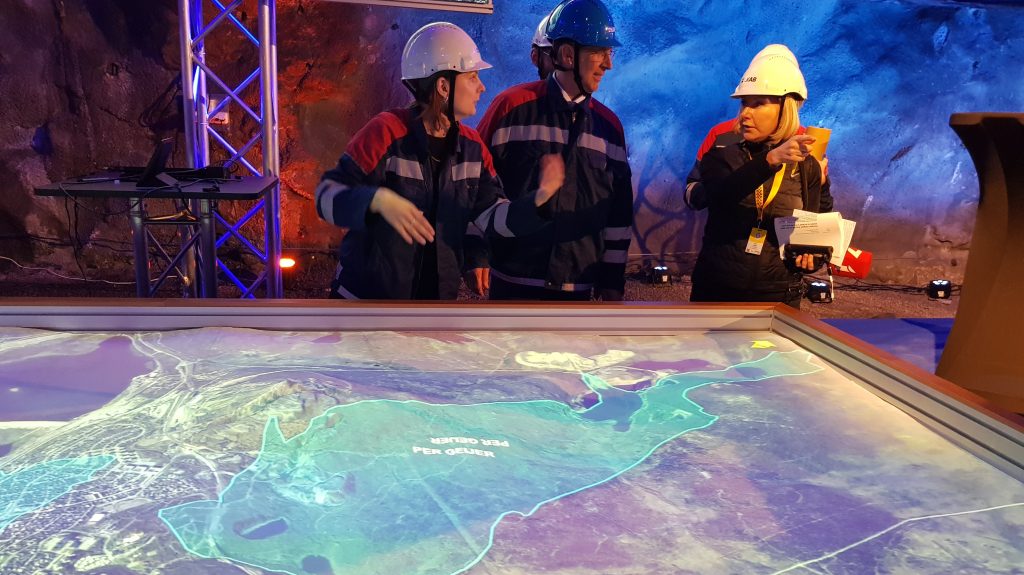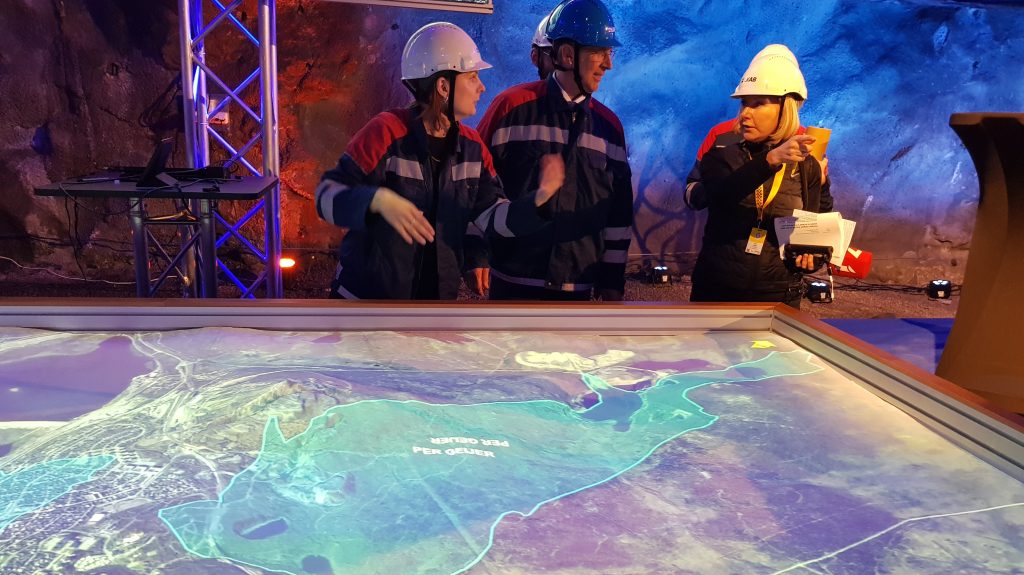Sweden announces discovery of Europe’s biggest deposit of rare earth metals
Swedish state-owned mining company LKAB on Thursday (12 January) said it had identified more than 1 million tonnes of rare earth oxides in the Kiruna area in the far north of the country, the largest known such deposit in Europe.
Rare earth minerals are essential to many high-tech manufacturing processes and are used in electric vehicles, wind turbines, portable electronics, microphones and speakers.
“This is good news, not only for LKAB, the region and the Swedish people, but also for Europe and the climate,” LKAB CEO Jan Moström said in a statement.
“It could become a significant building block for producing the critical raw materials that are absolutely crucial to enable the green transition,” he said.
The newly found deposit, named Per Gejer, is in close proximity with the LKAB iron mine in Kiruna, which is the biggest in the world.
LKAB has already started to prepare a drift, several kilometres long, at a depth of approximately 700 metres in the existing Kiruna mine towards the new deposit in order to be able to investigate it at depth and in detail.
The rare earth elements in Per Geijer occur together with phosphorus in the mineral apatite, in what is mainly an iron ore deposit and which may therefore be produced as by-products. It also creates completely different opportunities for possible competitive mining.
LKAB is planning a circular industrial park in the northern Swedish city of Luleå with new technology for the extraction and processing of phosphorus, rare earth elements and fluorine based on today’s existing mining production.
“There, instead of landfilling the material, it can be used to create new, sustainable products. A production start is planned for 2027,” says Leif Boström, Senior Vice President, Business Area Special Products, LKAB.
Rare earth elements are currently not mined in Europe, leaving the region depending on imports from elsewhere, while demand is expected to rise in coming years due to a ramp-up in electric vehicles and renewable energy.
“Electrification, the EU’s self-sufficiency and independence from Russia and China will begin in the mine,” Minister for Energy, Business and Industry Ebba Busch said in the statement.
Sweden currently holds the rotating presidency of the Council of the European Union and is a country seen as a key part of the EU’s strategy for self-sufficiency in key minerals.
The European Commission considers rare earths to be among the most critical resources for the region. The vast majority of rare earths are currently mined in China.
Still, the road to mining the deposit in Sweden is a long one.
LKAB said it planned to submit an application for an exploitation concession in 2023 but added that it would be at least 10-15 years before it could potentially begin mining the deposit and shipping to market.
The process toward approval of new mines is lengthy and demanding in the Nordic country as operations often raise the risk impacting water resources and biodiversity in the areas where they are located.
Additionally, Erik Jonsson, senior geologist at the Department of Mineral Resources at the Geological Survey of Sweden, said Europe currently lacks full-scale capacity to process rare earth metals and to make intermediary products.
“So we also need to focus on the entire value chain on these metals, products like high efficiency magnets that we want to use for wind turbines or traction engines in EVs and so on,” Jonsson said.

